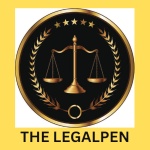“Drafting an Effective Audio Recording Order: Legal Guidelines and Procedures”
Service Description
Introduction
An Audio Recording Order is a legal document issued by a court or a legal authority, granting permission to record audio during specific proceedings. This order is crucial in contexts where audio recording is necessary for maintaining records, ensuring transparency, or providing evidence.
Requirement
The need for an Audio Recording Order arises in situations where audio documentation of proceedings is required, either for legal, administrative, or record-keeping purposes. This could include court hearings, depositions, meetings, or other events where an official audio record is deemed necessary.
How to Draft
To draft an Audio Recording Order:
- Jurisdiction and Case Details: Begin with the jurisdictional information, case title, and number.
- Purpose of the Order: Clearly state the purpose of the audio recording, specifying the event or proceeding in question.
- Scope of Recording: Define the scope of the recording, including what parts of the proceedings should be recorded.
- Duration: Specify the duration for which the order is valid.
- Responsibility for Recording: Designate the individual or entity responsible for conducting the audio recording.
- Compliance with Legal Standards: Ensure that the order complies with any legal standards or restrictions related to audio recording in the jurisdiction.
- Judge’s or Issuing Authority’s Signature: The order must be signed by the judge or the legal authority issuing the order, validating its legitimacy.
Filing
The Audio Recording Order should be filed with the court clerk or appropriate administrative office. Copies should be distributed to all relevant parties, including the individual or entity responsible for recording.
Conclusion
An Audio Recording Order is an essential tool in legal and administrative proceedings, providing a mechanism for creating official audio records. It ensures that the recording is conducted lawfully and that the records serve their intended purpose effectively.



